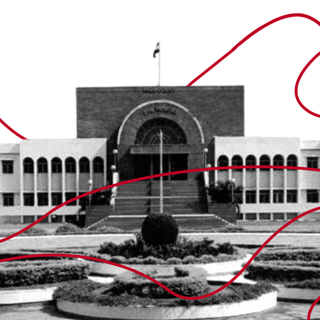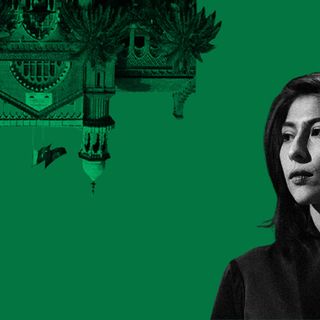For a month now, young Muslim girls are being denied entry into classrooms of some colleges forwearing hijab headscarves with their uniforms. These students have spent nearly a month protesting at a pre-university (PU) college for women in Karnataka’s Udupi district.
In a letter issued by the state education department on Tuesday, the government stated it wouldformulate guidelines on uniform dress codes across the state’s PU colleges. To this effect, it will analyze court orders and form a committee to look into this. Their concern is the protesting students, those demanding the right to assert their identity, have created a “confusion, which is not good for academics.”
Adding on to this, the state education minister B.C. Nagesh recently told The Indian Express: “What if tomorrow someone comes to the college in shorts saying it is hot? We cannot allow it. The colleges had set their own rules and it was being followed.” Around the same time, three separate instances of unofficial curbs on wearing hijabs emerged across the state; one from a college in Chikkamagalur, a private college in Mangalore, and another from Udupi.
The argument here, and one also being floated to impose unofficial hijab curbs, is purportedly that of ensuring “uniformity” among all students. Predictably, the college principal called these protesting students “undisciplined, irregular, and arrogant” — a clear attempt to delegitimize their claims.
Moreover, it very blatantly dismisses the politically and religiously charged context. Earlier this month, The Swaddle had reported on how “the ‘uniform’ dress code rhetoric barely disguises the Islamophobia at the core of such opposition… Students being denied entry into classes is more than a matter of college policy; it is about students’ identity, freedom, and academic subjugation.” In this case, the opposition was first raised by a group of Hindutva supporters, which is now being arbitrarily imposed throughout.
One of the students protesting told The Wire: “We are not asking for an extra piece of shawl; we will wear what the uniform provides, we just want to put it on our head — that’s it. Some will put [it] on their neck, some will put it in v-shape, we’ll just put on our head. That’s it. We’re not asking for any extra piece — like not green, not orange, no extra color. We’re just asking for covering our head with a headscarf, that’s it.” The opposition, she said, erroneously paints their demands as “communal,” when their ask is indeed a simple one.
Related on The Swaddle:
Karnataka College Restricts Students From Wearing Hijab in Classrooms
Moreover, Nagesh said the college had predetermined dress code guidelines. But there is no particular dress code mandated by the government; the admission guidelines of the PU board don’t mention any restrictions on wearing hijabs. “Our lecturers said that it (hijab) defies college policy. But when we checked the policy a month ago, we were shocked to see no such mention in the signed agreement. So, we decided to wear hijab from December 28 after repeated appeals to the management turned futile,” said Muskan, one of the girls. A Newslaundry reportnotes even the official admission forms mention a “neat, full uniform,” without referring to religion.
In an interview, Karnataka’s home minister said the government plans to bring in uniform across all colleges. This was his reasoning: “At least in our schools and colleges there must be a universal feeling that we are all Indians; if students begin to behave like religion is more important, then what sort of future are we building. We have a plan to bring in uniforms in all colleges.”
But this is not about “flaunting” your religious identity, or about unfairly “politicizing” the issue, or embedding feelings of “separatism.” The Indian Constitution gives people the freedom to practice their religion. In other cases where educational institutions mandated removal of hijab and headscarves for, let’s say writing an exam, the law ruled in favor of the students.
In 2015, the Kerala High Court allowed two Muslim girls to wear hijabs during the pre-medical entrance examination. The court said that if a particular piece of clothing is mandated by religion, it cannot be insisted that it be avoided; adding it was incorrect for any authority to deny anyone the right to their religious attire. This ruling was again iterated in 2017, when the Kerala High Court said the right to wear a hijab would be covered by Article 25 of the Constitution. The students also have a right to receive an education without discrimination.
More importantly, the “debate” overlooks the idea of individual dress choices creating and shaping identities in an education setting. It pits education and faith as two false dichotomies. Uniforms in principle are fine, but a uniform dress code would inevitably use state policy as a crutch to impinge on individual rights.




